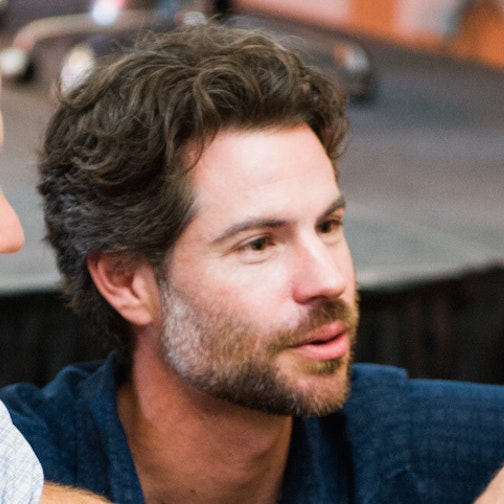It’s Not About the Climate
The Great Progressive Reversal: Part One
-
-
Share
-
Share via Twitter -
Share via Facebook -
Share via Email
-
Over the last few decades, humans achieved one of the most remarkable victories for social justice in the history of the species. The percentage of people who live in extreme poverty — under $1.25 per day — was halved between 1990 and 2010. Average life expectancy globally rose from 56 to 68 years since 1970. And hundreds of millions of desperately poor people went from burning dung and wood for fuel (whose smoke takes two million souls a year) to using electricity, allowing them to enjoy refrigerators, washing machines, and smoke-free stoves.
Of course, all of this new development puts big pressures on the environment. While the transition from wood to coal is overwhelmingly positive for forests, coal-burning is now a major contributor to global warming. The challenge for the twenty-first century is thus to triple global energy demand, so that the world's poorest can enjoy modern living standards, while reducing our carbon emissions from energy production to zero.
For the last 20 years, most everyone who cared about global warming hoped for a binding international treaty abroad, and some combination of carbon pricing, pollution regulations, and renewable energy mandates at home. That approach is now in ruins. In 2010, UN negotiations failed to create a successor to the failed Kyoto treaty. A few months later cap and trade died in the Senate. And two weeks ago, the slow motion collapse of the European Emissions Trading Scheme reached its nadir, with carbon prices, already at historic lows, collapsing after EU leaders refused to tighten the cap on emissions.
What rushed into the vacuum was "climate justice," a movement headed by left-leaning groups like 350.org, the Sierra Club, and Greenpeace. These groups invoke the vulnerability of the poor to climate change, but elide the reality that more energy makes them more resilient. "Huge swaths of the world have been developing over the last three decades at an unprecedented pace and scale," writes political scientist Christopher Foreman in "On Justice Movements," a new article for Breakthrough Journal. "Contemporary demands for climate justice have been, at best, indifferent to these rather remarkable developments and, at worst, openly hostile."
For the climate justice movement, global warming is not to be dealt with by switching to cleaner forms of energy, but rather by returning to a pastoral, renewable-powered, and low-energy society. "Real climate solutions," writes Klein, "are ones that steer these interventions to systematically disperse and devolve power and control to the community level, whether through community-controlled renewable energy, local organic agriculture, or transit systems genuinely accountable to their users…"
Climate change can only be solved by "fixing everything," says McKibben, from how we eat, travel, produce, reproduce, consume, and live. “It’s not an engineering problem," McKibben argued recently in Rolling Stone. "It's a greed problem." Fixing it will require a "new civilizational paradigm," says Klein, "grounded not in dominance over nature, but in respect for natural cycles of renewal."
Climate skeptics are right, Klein cheerily concludes: the Left is using climate change to advance policies they have long wanted. "In short," says Klein, "climate change supercharges the pre-existing case for virtually every progressive demand on the books, binding them into a coherent agenda based on a clear scientific imperative."
As such, global warming is our most wicked problem. The end of our world is heralded by ideologues with specific solutions already in mind: de-growth, rural living, low-energy consumption, and renewable energies that will supposedly harmonize us with Nature. The response from the Right was all-too predictable. If climate change "supercharges the pre-existing case for virtually every progressive demand," as conservatives decided long ago, then climate change is either not happening or is not much to worry about.
Wicked problems can only be solved if the ideological discourses that give rise to them are disrupted, and that's what political scientist Foreman does brilliantly in "On Justice Movements." If climate justice activists truly cared about poverty and climate change, Foreman notes, they would advocate things like better cook stoves and helping poor nations accelerate the transition from dirtier to cleaner fuels. Instead they make demands that range from the preposterous (eg, de-growth) to the picayune (eg, organic farming).
Once upon a time, social justice was synonymous with equal access to modern amenities — electric lighting so poor children could read at night, refrigerators so milk could be kept on hand, and washing machines to save the hands and backs of women. Malthus was rightly denounced by generations of socialists as a cruel aristocrat who cloaked his elitism in pseudo-science, and claimed that Nature couldn't possibly feed any more hungry months.
Now, at the very moment modern energy arrives for global poor — something a prior generation of socialists would have celebrated and, indeed, demanded — today's leading left-wing leaders advocate a return to energy penury. The loudest advocates of cheap energy for the poor are on the libertarian Right, while The Nation dresses up neo-Malthusianism as revolutionary socialism.
Left-wing politics was once about destabilizing power relations between the West and the Rest. Now, under the sign of climate justice, it's about sustaining them.
THE GREAT PROGRESSIVE REVERSAL
Part 1: It's Not About the Climate
Part 2: How the Left Came to Reject Cheap Energy for the Poor
Part 3: End of the World – or Decline of the West?![]()
Christopher Foreman, "On Justice Movements," Breakthrough Journal, Winter 2013
Photo Credit: TckTckTck / Truthout.org

